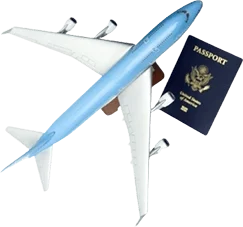
Study in Canada

- Study in Canada
- Why Study in Canada?
- Structure of Education System
- Types of Institutions
- Academic Year Start (Intakes)
- Tuition Fees and Scholarships
- Living and Studying in Canada
-
Work Rights for International
Students in Canada -
Post-Graduation Work Permit
(PGWP) - Application & Admission Process
- Requirements for Student Visa
Study in Canada
Welcome to the ultimate guide for studying in Canada! This comprehensive resource caters to prospective students, parents, and educators alike, offering essential information for embarking on an academic journey in one of the world's premier destinations for higher education. Discover insights on universities, application procedures, scholarships, student visas, and the vibrant cultural landscape awaiting you. With renowned academic institutions, diverse communities, and stunning natural landscapes, Canada promises an enriching educational experience like no other. Start your journey today and unlock a world of opportunities in one of the most desirable study destinations globally.
Why Study in Canada?
Studying in Canada offers numerous advantages, making it a popular destination for international students. Here are several reasons why studying in Canada is highly appealing:
Canada is renowned for its world-class education system, with universities consistently ranking among the top in global rankings. Canadian degrees are recognized and respected worldwide.
Canada is known for its multiculturalism and welcoming attitude towards international students. This creates a supportive environment for students from various backgrounds to study and thrive.
Canada is considered one of the safest countries in the world, offering a peaceful and secure environment conducive to learning.
International students in Canada are often allowed to work part-time during their studies and full-time during scheduled breaks, which can help them gain valuable work experience and offset living expenses.
Canada offers various pathways for international students to transition to permanent residency after completing their studies, making it an attractive option for those seeking to build a career and settle in the country.
While tuition fees in Canada may vary depending on the institution and program, they are generally more affordable compared to other top study destinations like the United States and the United Kingdom. Additionally, there are many scholarship and funding opportunities available for international students.
Canada boasts breathtaking landscapes, including mountains, forests, lakes, and coastlines, offering plenty of opportunities for outdoor activities and exploration. The high quality of life and healthcare system contribute to Canada’s appeal as a study destination.
Canadian universities are at the forefront of research and innovation in various fields, providing students with access to cutting-edge facilities and opportunities to engage in groundbreaking research projects.
Canada is a bilingual country, with English and French as its official languages. Studying in Canada offers the chance to improve language skills in either English or French, depending on the region.
Studying in Canada allows students to build global networks, make lifelong friendships, and experience diverse cultures, enriching their personal and academic lives.
Structure of Education System
The education system in Canada typically follows a structure consisting of several levels:
This level is optional and typically serves children from infancy to around five years old. It focuses on early development and socialization skills.
Also known as primary school, this level typically covers grades 1 to 6 or 8, depending on the province or territory. Subjects include mathematics, language arts, science, social studies, and sometimes additional courses like music and physical education.
Also known as high school or secondary school, this level typically covers grades 9 to 12. It provides a more comprehensive curriculum, including core subjects like mathematics, English, science, social studies, and elective courses that allow students to explore their interests and prepare for post-secondary education or the workforce.
College: Offers diploma and certificate programs that are typically more career-focused and practical in nature.
University: Offers undergraduate and graduate degree programs. Undergraduate programs typically span three to four years leading to a bachelor’s degree, while graduate programs include master’s and doctoral degrees.
Technical and Vocational Institutes: Offer specialized training in various fields such as technology, trades, healthcare, and business.
Canada also provides opportunities for adult learners to continue their education through various programs offered by colleges, universities, and adult education centers.
Many colleges and universities offer continuing education programs designed for individuals seeking to upgrade their skills or pursue further learning opportunities while working.
It’s important to note that the education system in Canada can vary slightly between provinces and territories, as each has its own jurisdiction over education and may have unique policies and curriculum standards. However, overall, the system is designed to provide a high-quality education that prepares students for further studies or entry into the workforce.
Types of Institutions
Universities
Canadian universities offer undergraduate and graduate programs across various fields of study. They focus on research and academic excellence, providing opportunities for both domestic and international students.
Colleges
Colleges, also known as community colleges or technical institutes, offer career-oriented programs, certificates, diplomas, and applied degrees. They emphasize practical skills and hands-on training for specific industries.
Technical and Vocational Schools
These institutions provide specialized training in trades and vocational skills, preparing students for careers in areas such as automotive technology, culinary arts, and construction trades.
Language Schools
Language schools offer English or French language training for international students and newcomers to Canada. They help improve language proficiency for academic, professional, or personal purposes.
Academic Year Start (Intakes)
Intakes for international students in Canada generally vary depending on the institution, program, and level of study (undergraduate, graduate, etc.). However, most Canadian universities and colleges typically offer intakes in the following periods:
Fall Intake (September): This is the primary intake period for most programs, especially at the undergraduate level. Many universities and colleges admit a large number of students during this time.
Winter Intake (January): Some institutions offer a winter intake, though it's less common than the fall intake. Certain programs and universities may accept a smaller number of students during this period.
Spring/Summer Intake (May/June or July): Some universities and colleges also offer a spring or summer intake, which typically begins in May, June, or July. This intake is less common but may be available for specific programs or courses.
Tuition Fees and Scholarships
Tuition Fees
In Canada, tuition fees vary depending on the institution, program, and whether the student is a domestic or international student. On average, undergraduate tuition fees for domestic students range from CAD $6,000 to $25,000 per year, while for international students, it can range from CAD $10,000 to $40,000 per year. Graduate programs tend to be slightly higher, with domestic students paying around CAD $7,000 to $35,000 per year and international students paying CAD $10,000 to $60,000 per year.
Scholarships
Canada offers various scholarships, grants, and awards to both domestic and international students to help offset the costs of education. These scholarships can be offered by the government, universities, private organizations, or foreign governments. Some scholarships are based on academic merit, while others may consider factors such as financial need, community involvement, or specific criteria related to the student's background or field of study.
Here are some common scholarship options for international students in Canada:
The Canadian government offers several scholarships to international students, such as the International Scholarship Program and the Vanier Canada Graduate Scholarships.
Many Canadian college/universities offer scholarships specifically for international students. These scholarships may be merit-based or need-based and can cover tuition fees, living expenses, or both.
Some Canadian provinces offer scholarships to international students studying within their borders. These scholarships may be available through provincial governments or educational institutions.
Individual departments or faculties within universities may offer scholarships to international students enrolled in specific programs or courses of study.
It’s essential for students to research and apply for scholarships well in advance of their intended start date, as deadlines and application requirements vary. Universities’ websites, government scholarship portals, and international student offices are valuable resources for finding scholarship opportunities and application guidelines.
Living and Studying in Canada
Cost of Living: The cost of living in Canada varies depending on the city or province. Generally, major cities like Toronto, Vancouver, and Montreal have higher living costs compared to smaller cities or rural areas. International students should budget for expenses such as accommodation, food, transportation, health insurance, textbooks, and personal expenses. On average, international students can expect to spend between CAD $10,000 to $15,000 per year on living expenses, although this can vary significantly depending on lifestyle and location.
Accommodation Options: Explore accommodation options available to international students, including on-campus residences, off-campus housing, and homestays.
Student Life and Support Services: Learn about student life in Canada, including extracurricular activities, student clubs, support services, and resources available to help you succeed academically and personally.
Healthcare and Safety: Understand Canada's healthcare system and safety measures to ensure your well-being while studying in the country.
Work Opportunities: Discover opportunities for part-time work, internships, and co-op programs available to international students in Canada, and understand the regulations governing employment.
Exploring Canada: Take advantage of your time in Canada to explore its breathtaking landscapes, vibrant cities, cultural attractions, and recreational activities.
Work Rights for International Students in Canada
International students studying in Canada have certain rights and regulations regarding work opportunities. Here's an overview of the work rights for international students:
Study Permit: International students must have a valid study permit to study in Canada. This permit may include conditions regarding the ability to work while studying.
Work While Studying: Most international students with a valid study permit are eligible to work part-time while studying. Typically, they can work up to 20 hours per week during regular academic sessions and full-time during scheduled breaks, such as winter and summer holidays. However, some programs or courses may have different regulations, so students should check with their designated learning institution.
Off-Campus Work Permit: International students may be eligible for an off-campus work permit, allowing them to work off-campus while studying. To qualify, students must have a valid study permit, be enrolled full-time in a designated learning institution for at least six months, and have maintained satisfactory academic standing. The off-campus work permit allows students to work up to 20 hours per week during regular academic sessions and full-time during scheduled breaks.
Co-op and Internship Programs: Many Canadian universities and colleges offer co-op or internship programs as part of their curriculum. International students enrolled in these programs may be eligible to work full-time as part of their program requirements. However, they must have a valid study permit that explicitly states they are authorized to work off-campus and have a co-op work permit.
Post-Graduation Work Permit (PGWP): After completing their studies, international students may be eligible for a Post-Graduation Work Permit (PGWP). This permit allows students who have graduated from eligible Canadian institutions to work in Canada for up to three years. The duration of the PGWP depends on the length of the study program completed, with a minimum of eight months and a maximum of three years.
Work Restrictions: Some international students may have restrictions on the type of work they can undertake, such as working in industries related to healthcare or childcare. Additionally, there may be restrictions on working if the student is on academic probation.
Social Insurance Number (SIN): International students authorized to work in Canada must have a Social Insurance Number (SIN) issued by the Government of Canada. The SIN is required for employment and to receive benefits and services from government programs.
It's essential for international students to familiarize themselves with these regulations and seek guidance from their designated learning institution's international student office or the Immigration, Refugees and Citizenship Canada (IRCC) website for accurate and up-to-date information.
Post-Graduation Work Permit (PGWP)
The Post-Graduation Work Permit (PGWP) in Canada is a program designed to allow international students who have graduated from eligible Canadian institutions to gain valuable Canadian work experience. This permit enables them to work in Canada for a period equivalent to the length of their study program, up to a maximum of three years. Here are some key points about the PGWP:
Eligibility: To be eligible for a PGWP, you must have completed a full-time program of study that lasted at least eight months at a designated learning institution (DLI) in Canada. The program must lead to a degree, diploma, or certificate. You must also have maintained full-time student status in Canada during each academic session of your program and have graduated from a participating institution.
Duration: The duration of the PGWP depends on the length of your study program. If your program is less than eight months, you're not eligible for a PGWP. If your program was between eight months and two years, your PGWP will be valid for up to the same length as your study program. If your program was two years or more, your PGWP can be valid for up to three years.
Application Process: You must apply for the PGWP within 180 days of receiving written confirmation of completing your program and meeting all the requirements for graduation. You can apply online or through a paper application, and you'll need to provide various documents, including your study permit, passport, proof of completion of your program, and other supporting documents.
Work Conditions: With a PGWP, you can work for any employer in Canada and in any location. You do not need a job offer to apply for a PGWP. However, you must actively look for work and may need to prove that you're doing so if asked. You're also not restricted to a specific occupation.
Pathway to Permanent Residence: Many international graduates use the PGWP as a pathway to permanent residence in Canada. Gaining Canadian work experience through the PGWP can increase your chances of qualifying for permanent residency through programs like the Canadian Experience Class (CEC) or various provincial nominee programs (PNPs).
It's important to note that immigration policies and regulations can change, so it's advisable to check the latest information on the official website of Immigration, Refugees and Citizenship Canada (IRCC) or consult with a qualified immigration advisor for the most up-to-date guidance.
Application & Admission Process
Choosing the Right Program and Institution: Research and compare programs and institutions based on your academic interests, career goals, location preferences, and budget.
Application Procedures: Understand the application requirements and procedures for your chosen program and institution, including admission deadlines, required documents, and application fees.
Visa and Study Permit: Familiarize yourself with the visa and study permit requirements for international students studying in Canada, and ensure you meet all the necessary criteria.
Financial Planning: Develop a financial plan to cover tuition fees, living expenses, and other costs associated with studying in Canada, including scholarships, grants, and part-time work opportunities.
Pre-Departure Preparation: Prepare for your journey to Canada by arranging accommodation, obtaining health insurance, and familiarizing yourself with Canadian culture and customs.
Requirement for Student Visa
To obtain a student visa (study permit) for Canada, you need to fulfill certain requirements and follow specific steps. Here's an overview:
Acceptance by a Designated Learning Institution (DLI): You must first receive an acceptance letter from a Canadian educational institution that is designated by the government to host international students. You can find the list of DLIs on the Immigration, Refugees and Citizenship Canada (IRCC) website.
Financial Support: You need to demonstrate that you have enough funds to cover your tuition fees, living expenses, and return transportation. This proof of funds requirement varies depending on the duration and location of your program.
Medical Examination: In some cases, you may need to undergo a medical examination to prove that you are in good health. This requirement depends on your home country and the duration of your stay in Canada.
Security Clearance: You may be required to provide a police clearance certificate or other documents to prove that you have no criminal record.
Language Proficiency: You may need to demonstrate proficiency in English or French, depending on the language of instruction at your chosen institution.
Application Process: Once you have received your acceptance letter and gathered all necessary documents, you can apply for a study permit online or through a visa application center (VAC) in your country. You will need to provide biometric information (fingerprints and photograph) as part of the application process.
Interview (if required): In some cases, you may be required to attend an interview at the Canadian embassy or consulate in your home country.
Waiting Period: Processing times for study permits vary depending on the country and time of year. It's essential to apply well in advance of your intended start date.
Study Permit Conditions: If your application is approved, your study permit will come with certain conditions, such as maintaining full-time student status and staying enrolled at a DLI. Make sure to familiarize yourself with these conditions and comply with them during your stay in Canada.
It's crucial to check the official website of Immigration, Refugees and Citizenship Canada (IRCC) for the most up-to-date information and requirements regarding study permits for Canada, as procedures and requirements may change over time.
Start Your Journey Today!


Embark on your academic journey in Canada and unlock a world of opportunities for personal growth, academic excellence, and professional success. Whether you're pursuing a degree, enhancing your skills, or exploring new horizons, Canada welcomes you with open arms. Begin your adventure today and make your dreams a reality in the Great White North! - Post-graduation work permits allow graduates to gain Canadian work experience and potentially transition to permanent residency. Ready to embark on your journey to academic success and cultural enrichment? Explore the endless possibilities of studying in Canada and unlock a world of opportunities that will shape your future. Start your adventure today!




